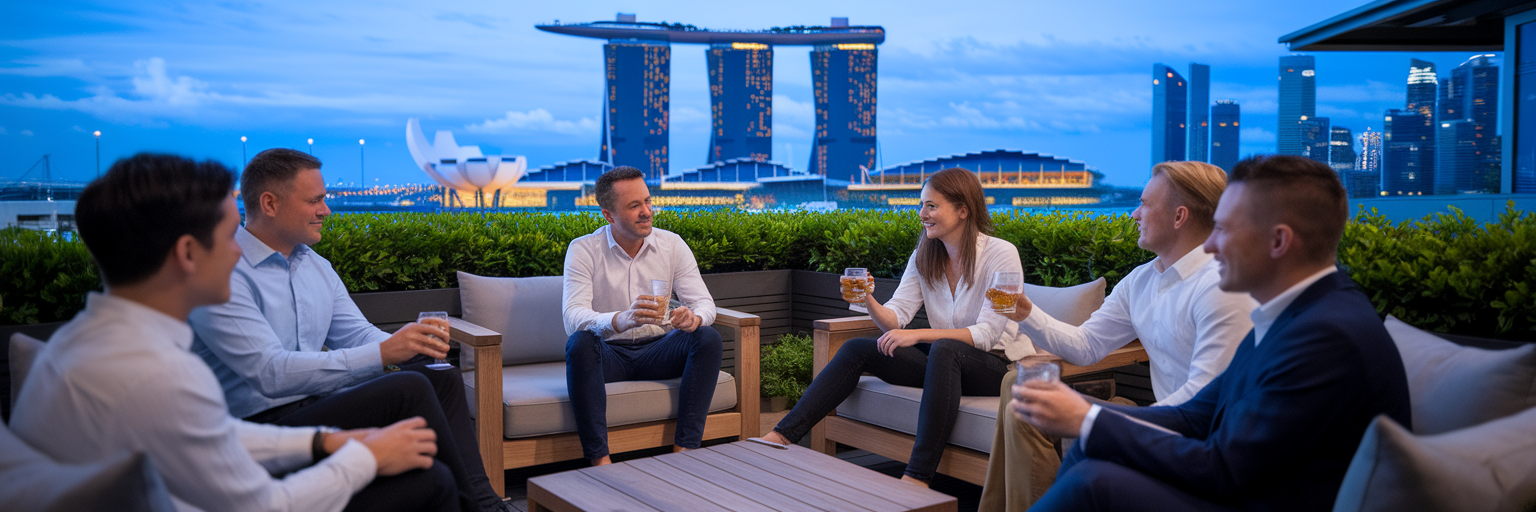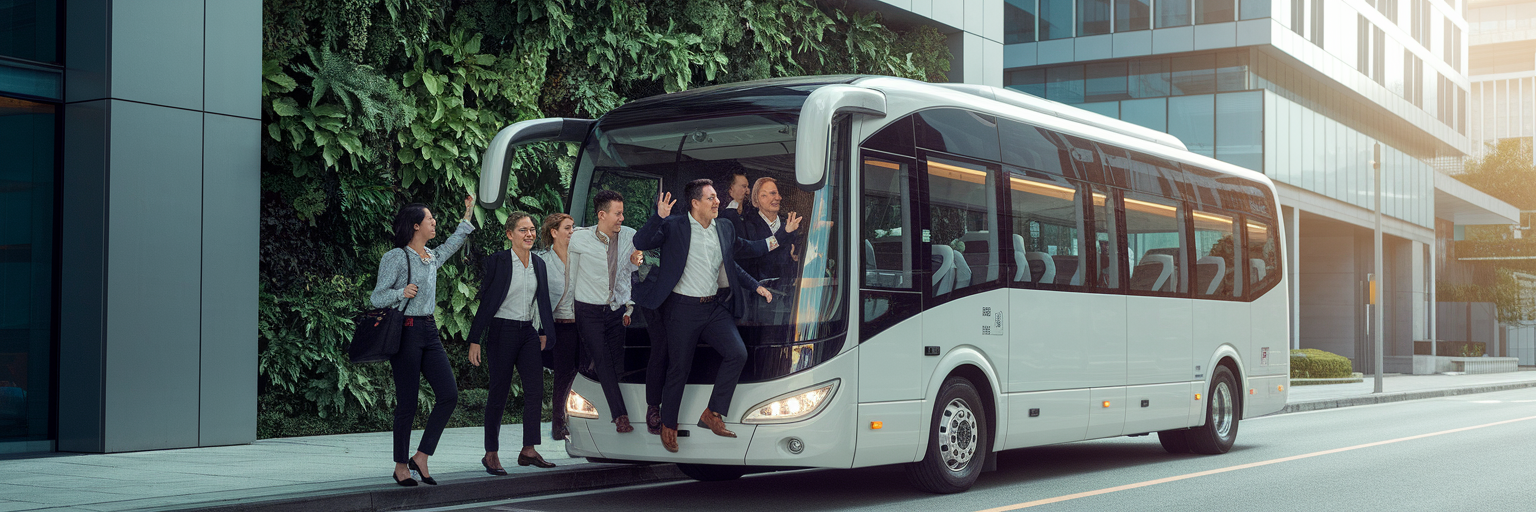How to Plan a Purposeful Corporate Incentive Trip in Singapore
Discover how to create impactful and responsible corporate incentive travel in Singapore that aligns with modern values.

Discover how to create impactful and responsible corporate incentive travel in Singapore that aligns with modern values.

The traditional model of corporate incentive travel, once defined by pure luxury, is being reshaped by a new set of expectations. Today’s professionals are looking for more than just a getaway. They seek meaningful engagement and want to see their company’s commitment to social and environmental responsibility reflected in their rewards. This shift presents a powerful opportunity for businesses to design experiences that resonate on a deeper level.
Singapore, with its "City in Nature" vision and world-class infrastructure, provides the perfect backdrop for this new standard. A thoughtfully planned trip here is not a compromise on quality but a strategic advantage. It enhances brand reputation, strengthens team bonds, and makes a clear statement about company culture. In this new era, purpose is the new luxury, and a well-executed sustainable incentive travel Singapore program can become a cornerstone of employee engagement. It fosters the kind of deep team connections that, as we've seen in our work, lead to greater brand loyalty.
The era of the all-expenses-paid luxury trip as the ultimate corporate reward is evolving. Modern professionals increasingly seek experiences that align with their personal values and reflect a genuine corporate commitment to social and environmental good. They want to see that the company they work for is a positive force, and an incentive trip is a highly visible expression of that identity. This is where purposeful travel moves from a nice-to-have to a strategic necessity.
Singapore stands out as an exemplary destination for this new model. Its ambition to be a "City in Nature" is not just a slogan but a tangible reality, visible in its green skyscrapers and extensive nature reserves. This environment provides a unique canvas for creating incentive trips that are both inspiring and responsible. Designing a trip with purpose isn't about sacrificing indulgence. Instead, it’s about enriching the experience by embedding meaning into every activity, meal, and interaction. This approach transforms a simple reward into a powerful tool for building a stronger, more connected, and more loyal team.
A truly purposeful incentive trip begins with a solid commitment to environmental stewardship. This foundation is built on conscious choices about where you stay, what you consume, and what you leave behind. These decisions are the building blocks of memorable and responsible eco friendly corporate events.
Your choice of accommodation and event spaces sends a clear message. Look for venues with verified commitments to sustainability. In Singapore, certifications like the Singapore Green Hotel Certification or the Building and Construction Authority's (BCA) Green Mark are reliable indicators. These credentials, with standards often guided by bodies like the National Environment Agency, confirm that a venue actively manages its energy consumption, water usage, and waste output, ensuring your stay supports responsible operators.
The items you source for your trip can either support or undermine your sustainability goals. Partner with caterers who prioritize local, seasonal produce to reduce food miles and showcase Singapore's culinary landscape. When it comes to corporate gifts, move beyond generic, mass-produced items. Instead, choose unique products from local artisans or social enterprises. This not only provides attendees with a meaningful souvenir but also directs economic benefits back into the community. These elements are just a few components of the comprehensive event services required to execute a truly sustainable trip.
A circular economy model aims to eliminate waste and keep resources in use for as long as possible. This concept can be applied directly to your event with a few practical steps:

How your team moves around a city is a critical component of your trip's environmental footprint. In a compact and efficient city like Singapore, smart logistical planning can significantly reduce emissions while enhancing the attendee experience. This focus on movement is a core pillar of planning successful green MICE events Singapore.
Instead of defaulting to private cars, consider leveraging Singapore’s world-class Mass Rapid Transit (MRT) system for city-wide travel. For private group transfers, chartering electric buses offers a comfortable, low-emission alternative. Another effective strategy is itinerary clustering. By grouping activities within specific precincts like Marina Bay, Sentosa, or the Civic District, you minimize travel time and the associated carbon output. This approach not only makes the schedule more efficient but also allows teams to immerse themselves more deeply in a particular neighborhood.
Of course, international flights remain a significant source of emissions. To address this, consider credible carbon offsetting programs. When selecting a program, look for verified, high-impact projects, such as reforestation or renewable energy initiatives in Southeast Asia, to ensure your contribution is making a tangible difference.
| Transportation Mode | Carbon Footprint | Best For | Considerations |
|---|---|---|---|
| Mass Rapid Transit (MRT) | Very Low | City-wide travel for medium to large groups | Requires walking to/from stations; not private |
| Chartered Electric Bus | Low | Private, comfortable transfers for large groups | Higher cost than public transport; requires booking |
| Standard Coach Bus | Moderate | Cost-effective private transfers for large groups | Higher emissions than electric alternatives |
| Ride-Sharing (Multiple Cars) | High | Small, fragmented groups or individual transfers | Inefficient for group cohesion; highest per-person footprint |
Note: This comparison is based on per-person emissions for group travel within Singapore. Choices should align with the group's size, budget, and the desired level of convenience and exclusivity.
A purposeful trip goes beyond environmental responsibility to embrace social and cultural depth. The most memorable experiences are often those that connect attendees to the heart of a destination. This means moving past standard tourist attractions and creating opportunities for genuine interaction with the local community. These collaborations are key to designing impactful corporate team building Singapore activities.
Instead of a generic city tour, imagine a cooking class that preserves and shares traditional Peranakan heritage recipes, led by a family that has passed them down for generations. Picture a guided nature walk through a reserve led by a local conservationist who can share insights into Singapore's unique biodiversity. Or consider a workshop with a traditional batik artist where your team can learn the craft firsthand. These experiences are not only unique and engaging but also provide direct economic support to local communities.
The key is to ensure these partnerships are ethical and co-created. They should be collaborations that respect local culture and provide fair compensation, rather than being purely extractive. As highlighted in stories from Singapore's Urban Redevelopment Authority, industry collaboration can be instrumental in shaping inclusive community spaces. To explore how to initiate these meaningful collaborations, you can learn more about how we work with partners to build authentic programs.

A truly purposeful trip is one where every single participant feels seen, respected, and able to fully engage. This requires moving beyond basic accessibility and embracing a broader, more nuanced approach to inclusivity. Designing thoughtful and inclusive incentive programs is about anticipating the diverse needs of your team and creating an environment of genuine belonging.
This means considering the entire attendee journey, from pre-trip communications to on-site activities. Digital materials, like event apps and websites, should be compatible with screen readers and use clear, accessible fonts. On the ground, inclusivity manifests in many ways. It’s about offering activities with varying levels of physical intensity, providing quiet zones for those who may need a break from sensory stimulation, and proactively catering to a wide range of dietary requirements. For a deeper framework, resources like the 'Design Playbook for Inclusive Spaces' developed by SG Enable offer valuable guidance for businesses.
Key areas of inclusive design to consider include:
The success of a purposeful incentive trip extends far beyond the immediate enjoyment of the participants. Its true value lies in its lasting impact on team morale, employee engagement, and the company’s reputation. Measuring this impact requires looking beyond traditional financial ROI to capture the less tangible, but equally important, outcomes.
Post-trip employee engagement surveys can provide quantitative data on morale and team cohesion. Qualitative feedback gathered through interviews or focus groups can offer deeper insights into what resonated most with attendees. Analyzing social media sentiment can also reveal how the trip was perceived both internally and externally. A well-executed sustainable incentive trip becomes a powerful strategic asset. It serves as a compelling story for talent acquisition and retention, demonstrating an authentic commitment to ESG goals.
Ultimately, these principles are not confined to Singapore. The strategies outlined here form a transferable blueprint for creating meaningful corporate travel experiences across the Asia-Pacific region. The tangible results from these trips, which we've seen with our clients, reinforce their value far beyond the initial investment, setting a new benchmark for what corporate rewards can and should achieve.